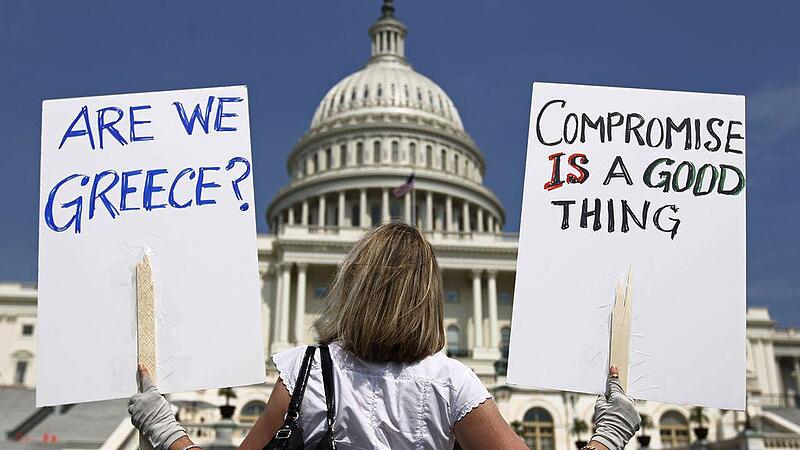Image: Reuters
The debt dispute has boiled up again and again in recent years. However, the consequences of a default would be severe for the USA – and far beyond.
Why are Democrats and Republicans fighting over the US debt?
In the US, government debt is capped by a legal limit. This limit must be raised at irregular intervals by Congress. In the case of different majorities in the chambers of Congress – House of Representatives and Senate – this often leads to political disputes. It is the same now.
The corresponding law specifies a specific maximum amount for US debt – a relatively rigid procedure that is not common in almost any other country in the world. The upper limit is currently 31.4 trillion dollars (29.1 trillion euros). Because this ceiling has already been reached, the United States can only stay afloat with a few financial policy tricks – known in technical jargon as “extraordinary measures”. In other words, the treasury is almost empty.
Why is US debt so important?
The United States is not only the largest economy in the world, but also the world’s most important debtor. American government bonds enjoy a first-class international reputation. As a financial investment, they are almost unrivaled. Last but not least, the sheer size of the US financial market contributes to this. As a result, the US dollar enjoys the status of a de facto world reserve currency. In many trading and financial transactions, it cannot be replaced, at least in the short term. If this system falters, there is a risk of serious economic upheaval.
What problems can arise?
The concrete consequences are difficult to predict since the world has been spared such a significant default in the recent past. However, it is very likely that confidence in the United States as a solvent debtor would be shaken. The experts at the large US bank JP Morgan initially see the danger that important government spending such as pension payments would be canceled at least temporarily. More important for the global economy, however, would be that the already existing risk of an economic downturn in the United States would increase. In the medium term, even the dollar’s status as a global reserve currency could be called into question if the US defaults on its external debt.
What impact would an escalation have on Europe?
“It’s a question with a lot of ifs and buts,” says Ralfcircul, an expert from Landesbank Hessen-Thüringen. Should the US actually default, the dollar could lose a lot of value. In return, the euro should appreciate significantly. “That would be very inconvenient for the German export industry in the already difficult economic situation, since the stronger euro would make their goods more expensive internationally,” warns Runde. It is also conceivable that there will be an additional global rise in interest rates via the capital markets – which would also be a heavy burden for the German and European economy. “However, how long the debt dispute actually drags on will be decisive for the concrete effects,” expectscirculation.
How realistic is a political agreement?
Many experts are still assuming that the Democrats and Republicans will reach an agreement in good time. This Monday, US President Joe Biden plans to meet again with Republican negotiator Kevin McCarthy. Treasury Secretary Janet Yellen has been warning for a long time that there is not much time left: the first US payments are already threatening to fail at the beginning of June.
However, the past has shown that the parties can ultimately pull themselves together. “The debt limit has been raised 78 times since 1960,” says Thomas Gitzel, chief economist at VP Bank. It was the same in 2011, when the debt limit was raised almost at the last minute after major political strife. However, at that time the USA lost its status as a first-class debtor with the large rating agency Standard & Poor’s. Such ratings are important to a country’s reputation and cost of financing.
Experts also point to historical differences: According to the experts at JP Morgan, the political positions of the parties are further apart today than they were twelve years ago. In addition, the general economic conditions with high inflation, high interest rates and a weak economy are completely different today than they were then. That speaks for a sharper reaction of the financial markets to an escalation of today’s debt dispute.
Source: Nachrichten




